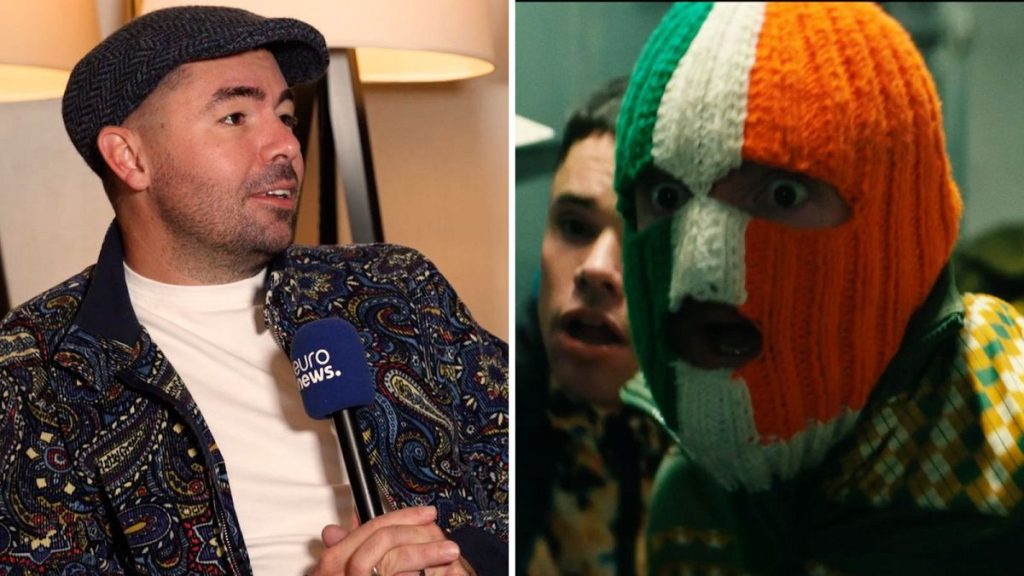Rich Peppiatt’s directorial debut, “Kneecap,” a music biopic about the eponymous Northern Irish hip-hop group, has taken the film world by storm. The film, which premiered at Sundance and won the Audience Award, has garnered critical acclaim and numerous awards, including seven British Independent Film Awards and Ireland’s nomination for Best International Feature at the Oscars. The film follows the trajectory of Móglaí Bap, Mo Chara, and DJ Próvaí, three rappers who use the Irish language to address socio-political issues and challenge the status quo. Peppiatt’s film is not just a celebration of the band; it’s a testament to the power of language and cultural preservation in the face of historical oppression.
The film’s success is even more remarkable considering its unconventional approach to the often-formulaic music biopic genre. Rather than a retrospective narrative, “Kneecap” presents a real-time, almost documentary-style portrayal of a band on the rise, capturing their raw energy and rebellious spirit. Peppiatt was initially drawn to the band’s unapologetic attitude and their ability to connect with a young, vibrant Irish-speaking community. Recognizing the untapped potential of their story, he embarked on a project that would amplify their voices and shed light on the importance of preserving indigenous languages and cultures.
As an Englishman living in Belfast and married to an Irish woman, Peppiatt was acutely aware of the sensitivities involved in telling this story. He acknowledges the initial suspicion from the band but believes his outsider perspective allowed him to approach the subject matter with a degree of impartiality, using comedy to address challenging topics and challenge deeply ingrained prejudices. The film’s humor, while irreverent and often provocative, serves as a vehicle for exploring complex issues related to identity, cultural preservation, and the ongoing tensions between England and Northern Ireland.
The film’s exploration of language preservation resonates deeply, particularly in a world increasingly dominated by English. “Kneecap” highlights the cultural value of language, emphasizing its connection to heritage, history, and identity. The film’s message transcends the specific context of the Irish language, resonating with audiences worldwide who connect with the importance of preserving cultural diversity and resisting linguistic homogenization. The stark statistic presented at the film’s end – that one indigenous language dies every 40 days – serves as a powerful reminder of the ongoing threat to linguistic diversity and the urgent need for its preservation.
Beyond its linguistic and cultural themes, “Kneecap” also delves into the complex political landscape of Northern Ireland. The band’s recent discrimination battle against the UK government, where they were denied funding due to their political beliefs, underscores the ongoing tensions and the subtle forms of oppression that persist. This incident, along with the historical context provided in the film, highlights the challenges of navigating a society still grappling with its past and the legacy of British rule.
Peppiatt’s film doesn’t offer easy answers to the complex political questions it raises. However, it sparks important conversations about identity, belonging, and the future of Northern Ireland. The film’s success lies not just in its entertainment value but also in its ability to provoke thought and encourage dialogue around these crucial issues. By showcasing the vibrant culture and resilience of the Irish language community, “Kneecap” offers a compelling argument for the importance of respecting and celebrating cultural diversity. It serves as a reminder that language is more than just a means of communication; it’s a vital link to our past, a reflection of our present, and a key to our future.














